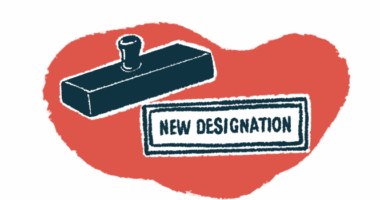Why Daily Stretching Is Important for Those with Duchenne Muscular Dystrophy

Stretching has been part of my daily life since I was diagnosed with Duchenne muscular dystrophy (DMD) about 17 years ago.
Every night, my parents would reserve 30 minutes to do passive stretching, and I saw a physical therapist regularly. We didn’t do it because we wanted to, but because we knew it was the best way to maintain my mobility and ability to walk. It’s had a huge impact on my life, and it can on yours, too.
The main idea behind passive stretching is that it reduces contractures, which are common in neuromuscular diseases such as DMD. A contracture refers to the inability of a muscle to complete a passive full range of motion. Contractures are generally caused by limited muscle movement combined with the replacement of muscle with fibrotic tissue.
When boys transition into wheelchairs and are less active, there is an even greater chance of developing contractures. Stretching is one of the most important ways I’ve been able to maintain my mobility. Night splints, standing, walking, and proper limb positioning also are necessary.
As uncomfortable as it might be, stretching should be done daily because it improves range of motion. The better the range, the less likely you will develop debilitating contractures. Some of it follows common sense. When you don’t move at all, your muscles become tight and compounded with fibrosis, and you will have difficulty walking.
Think of it this way: Our muscles are already significantly weaker than the average person’s, and working against our own tightness is a recipe for disaster.
For DMD and many other neuromuscular diseases, independence is the goal, and I believe stretching helps us achieve that ideal. I can move rather freely because I’m not actively working against much tightness, which means I can still play video games, write, and interact with the world around me.
If you are trying to learn a new instrument or language, you know that consistency is key. Once you practice enough, some parts will come without thinking. That’s also how it is with stretching. It may be uncomfortable or weird at first, but you will get used to it.
Consistency is important because it helps maintain your muscle movement. If you don’t drive a car for a while, it starts to rust, the engine locks, and the battery dies. When you don’t “drive” your muscles through passive stretching, they aren’t going to move very well.
Daily stretching also takes discipline. My parents and I wanted to skip it plenty of times, but I’m glad we didn’t. My muscles are glad, too.
***
Note: Muscular Dystrophy News is strictly a news and information website about the disease. It does not provide medical advice, diagnosis, or treatment. This content is not intended to be a substitute for professional medical advice, diagnosis, or treatment. Always seek the advice of your physician or another qualified health provider with any questions you may have regarding a medical condition. Never disregard professional medical advice or delay in seeking it because of something you have read on this website. The opinions expressed in this column are not those of Muscular Dystrophy News or its parent company, Bionews Services, and are intended to spark discussion about issues pertaining to muscular dystrophy.







Lisa
My son turns 18 yrs in March. It is very difficult for me to do the stretching. His is over weight and the tendants behind his knees has already shortened. And his ankles are stiff. Any advice, especially on weightloss.
Hawken Miller
Stretching is not easy but there are a few ways that you can get around the weight issue. There are devices called hoyer lifts which make it easier to transition from a wheelchair to a stretching table. I also recommend getting a stretching table via Amazon or other seller because that will make it easier on you. The last thing you want is to hurt yourself. I would recommend consulting with a physical therapist further.
As for the weight loss, have him eat as much veggies as possible and limit the portion sizes. Often, restaraunts give bigger portions than necessary, especially for someone with Duchenne who isn't burning as many calories.
Janeen
Thank you for you article, may I please request guidelines of which stretching exercise are recommended. Your valuable time and expertise are appreciated. Janeen
Hawken Miller
This resource from CureDuchenne would be helpful for you: https://www.cureduchenne.org/care/stretching/. It differs for everyone, but we focus on my hamstrings, quads, IT bands and wrist.
sam
hi my son is 5 and we just do leg stretching shall we be doing hand stretches to thank you
Hawken Miller
Hi, I didn't start doing hand stretches until I was a teenager. It depends on where he is at now regarding flexability. I would consult with your physical therapist.
Jaysen
Hi I have DMD and I am in a wheelchair. The stretching is really good to do. It's helping my future more and more. It might take a while to get most of those muscles lose but it worth it. I even have a little brother with DMD and in a wheelchair. Most of the time he refused to do his stretching. He just doesn't understand how helpful it is. But, my school and my mother always makes him do it. Which is a good thing they don't want him tight and not able to do as many things as he does. That's why I love my school and my mother very much because they are able to do this for me and my brother. Thank you for telling other people with DMD to do their stretching it really helps.
Chris F
Hi, thank you for a wonderful article giving guidance and hope to many. I am a physical therapist and creator of a technique called Frederick Stretch Therapy (formerly Fascial Stretch Therapy). I teach workshops to professionals who want to learn my painfree, comfortable and very effective method of assisted passive, active and resisted stretching.
I just got an email from a mother who wants to come train with me and bring her son who has Becker Muscular Dystrophy (BMD). She wants to learn it to help her son, while her son wants to also train with me and become a certified practitioner to help others.
Do you think it is a good idea to accept them into my program or not? Feel free to reach out to me privately if that is better for you.
Thank you,
Chris